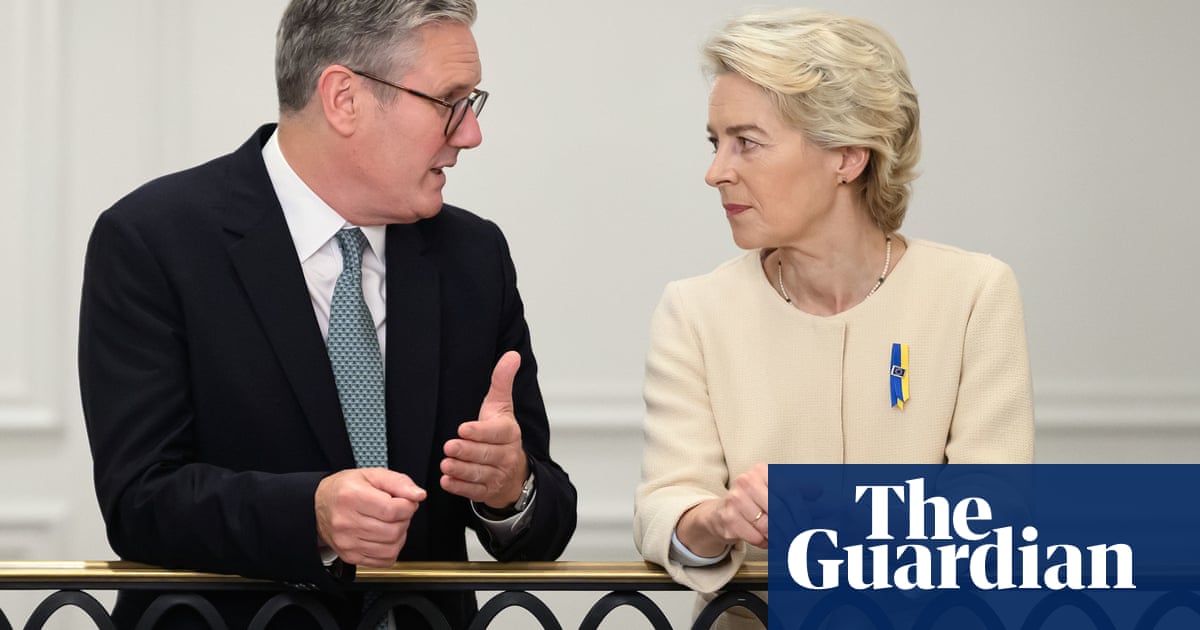EU member states have rejected UK positions on fishing and a youth mobility deal, as tensions mount before a much-anticipated summit between Keir Starmer andUrsula von der Leyennext week.
Senior EU diplomats meeting on Wednesday expressed disappointment and frustration over the British positions on fishing rights and youth mobility to the European Commission, which is negotiating a wide-ranging reset in relations with the British government.
France and the Netherlands, with broad backing, insist that an EU-UK veterinary agreement – aimed at reducing burdensome checks on food products crossing the border – should be limited to four years, unless London agrees to grant long-term access to British waters. The expiry date is an attempt to maximise leverage on the UK over the veterinary agreement, which was identified as a priority in the Labour manifesto.
The EU is deeply dismayed by the UK’s proposed four-year deal on fish, which is shorter than that Boris Johnson agreed in 2020. One EU ambassador told the meeting that Europe would be destroying its fishing industry without such reciprocity, it is understood.
One diplomatic source told the Guardian that the UK was “not sufficiently ambitious”. Another said: “There is a feeling among a large group of member states that the balance between rights and obligations is not there yet.”
The commission told the diplomats that talks with the UK were “very difficult” despite well over 100 hours spent in high-level negotiations over recent weeks.
Starmer is expected to meet von der Leyen on the margins of the European Political Community summit in Albania on Friday in a bid to unblock these sticking points. The prime minister will host von der Leyen; the European Council president, António Costa; and the EU high foreign affairs chief, Kaja Kallas, at the first EU-UK summit in London on Monday.
EU ambassadors will convene on Sunday to discuss the summit text, in a piece of last-minute scheduling reminiscent ofBrexitnegotiations.
Both sides hope to sign a defence agreement on Monday that will unlock the door to greater participation by British arms companies in European defence projects. Negotiators have already welcomed the accord in the draft summit declaration seen by the Guardian.
While several EU diplomats expressed confidence of a “substantial” outcome, they also insisted the UK had to move on post-Brexit fishing rights and youth mobility. “[Fisheries] is one of the building blocks of this agreement. It is not possible to imagine that we have a successful summit without a positive outcome on this issue,” a third diplomat said. “If you don’t have an agreement on fisheries, you don’t have an agreement on SDP [security and defence policy], you don’t have an agreement on migration. It has to be a win-win.”
Under thetrade agreement struck between the EU and Boris Johnsonin 2020, the EU’s share of fish quotas in British waters was reduced by 25% over a transition period that ends on 30 June 2026.
The EU, led by countries that fish in British waters, want a long-term agreement to preserve the status quo after that date.
EU member states are also unhappy with proposals that a work-study exchange scheme for people aged 18-30 could be limited to one year and subject to quotas.
On Wednesday numerous diplomats criticised UK plans not to exempt EU students from foreign tuition fee rates, a red line for the government, which is under stringent self-imposed public spending limits. While domestic students pay £9,535 a year, foreign student fees can range up to £38,000, adding significant costs for EU students studying in the UK.
The government, which on Monday unveiled tough measures that itexpects to curb migration by 100,000 a year, also opposes EU demands to waive the NHS surcharge for young people.
